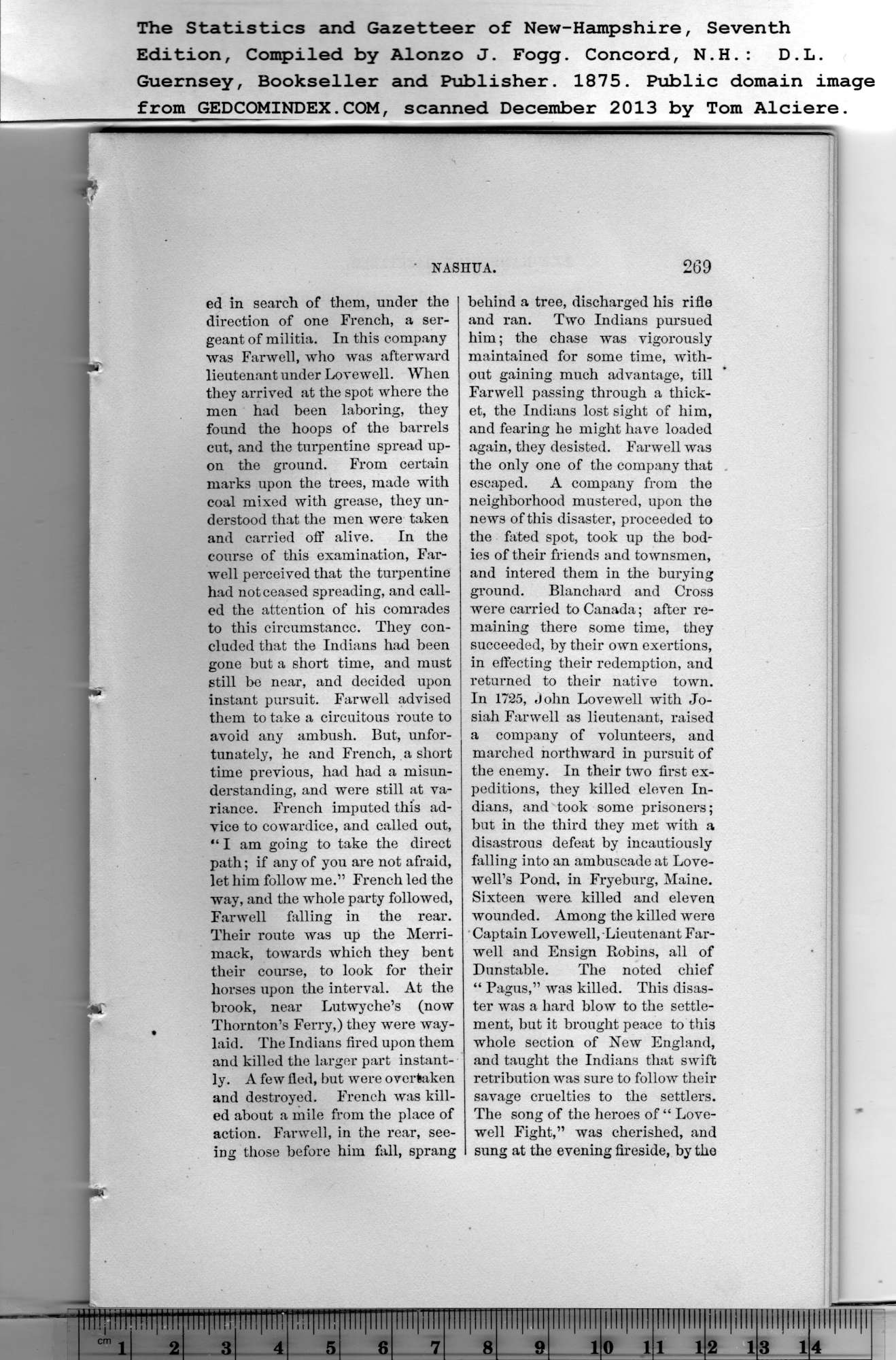|
ed in search of them, nnder the
direction of one French, a ser-
geant of militia. In this company
was Far well, who was afterward
lieutenant under Lovewell. When
they arrived at the spot where the
men had been laboring, they
found the hoops of the barrels
cut, and the turpentine spread up-
on the ground. From certain
marks upon the trees, made with
coal mixed with grease, they un-
derstood that the men were taken
and carried off alive. In the
course of this examination, Far-
well perceived that the turpentine
had not ceased spreading, and call-
ed the attention of his comrades
to this circumstance. They con-
cluded that the Indians had been
gone but a short time, and must
still be near, and decided upon
instant pursuit. Farwell advised
them to take a circuitous route to
avoid any ambush. But, unfor-
tunately, he and French, a short
time previous, had had a misun-
derstanding, and were still at va-
riance. French imputed this ad-
vice to cowardice, and called out,
“ I am going to take the direct
path; if any of you are not afraid,
let him follow me.” French led the
way, and the whole party followed,
Farwell falling in the rear.
Their route was up the Merri-
mack, towards which they bent
their course, to look for their
horses upon the interval. At the
brook, near Lutwyche’s (now
Thornton’s Ferry,) they were way-
laid. The Indians fired upon them
and killed the larger part instant-
ly. A few fled, but were overtaken
and destroyed. French was kill-
ed about a mile from the place of
action. Farwell, in the rear, see-
ing those before him fall, sprang |
behind a tree, discharged his rifle
and ran. Two Indians pursued
him; the chase was vigorously
maintained for some time, with-
out gaining much advantage, till
Farwell passing through a thick-
et, the Indians lost sight of him,
and fearing he might have loaded
again, they desisted. Farwell was
the only one of the company that
escaped. A company from the
neighborhood mustered, upon the
news of this disaster, proceeded to
the fated spot, took up the bod-
ies of their friends and townsmen,
and intered them in the burying
ground. Blanchard and Cross
were carried to Canada; after re-
maining there some time, they
succeeded, by their own exertions,
in effecting their redemption, and
returned to their native town.
In 1725, John Lovewell with Jo-
siah Farwell as lieutenant, raised
a company of volunteers, and
marched northward in pursuit of
the enemy. In their two first ex-
peditions, they killed eleven In-
dians, and took some prisoners;
but in the third they met with a
disastrous defeat by incautiously
falling into an ambuscade at Love-
well’s Pond, in Fryeburg, Maine.
Sixteen were, killed and eleven
wounded. Among the killed were
Captain Lovewell, -Lieutenant Far-
well and Ensign Robins, all of
Dunstable. The noted chief
“ Pagus,” was killed. This disas-
ter was a hard blow to the settle-
ment, but it brought peace to this
whole section of New England,
and taught the Indians that swift
retribution was sure to follow their
savage cruelties to the settlers.
The song of the heroes of “ Love-
well Fight,” was cherished, and
sung at the evening fireside, by the
|
